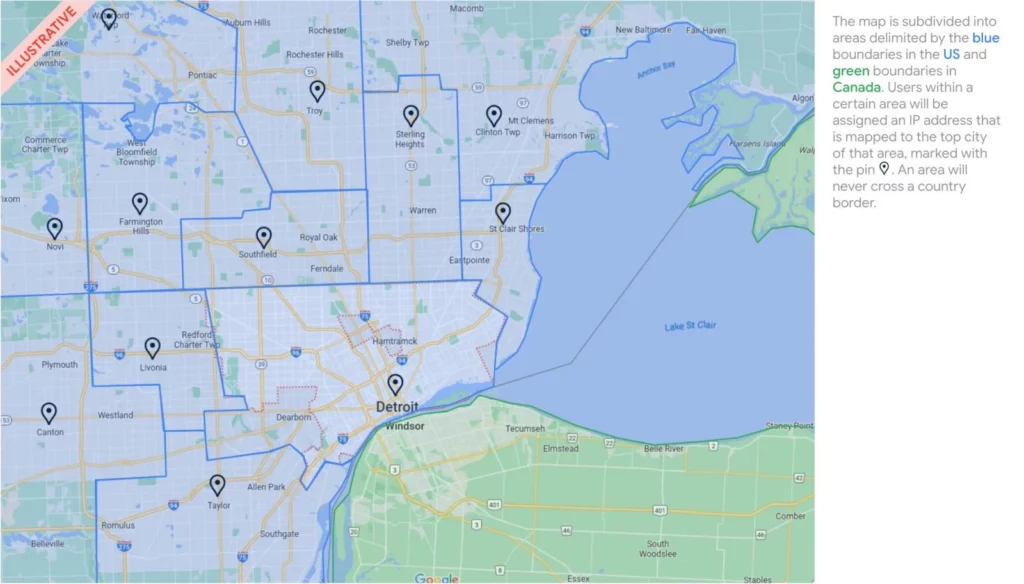Google Chrome, the highly acclaimed internet browser created by Google, has garnered attention due to its latest innovation known as “IP Protection.” This innovative function guarantees the concealed security of users’ IP addresses, thereby enhancing online privacy and security during web browsing.
An IP address serves as a distinctive marker enabling websites, online platforms, and external parties to observe and record a user’s digital actions. This has the potential to jeopardize user confidentiality and may lead to tailored ads or identity theft. Nevertheless, Google Chrome’s IP Protection effectively addresses these concerns.
Google Chrome, the highly acclaimed internet browser created by Google, has garnered attention due to its latest innovation known as “IP Protection.” This innovative function guarantees the concealed security of users’ IP addresses, thereby enhancing online privacy and security during web browsing.
An IP address serves as a distinctive marker enabling websites, online platforms, and external parties to observe and record a user’s digital actions. This has the potential to jeopardize user confidentiality and may lead to tailored ads or identity theft. Nevertheless, Google Chrome’s IP Protection effectively addresses these concerns.
This pioneering feature underscores Google’s ongoing commitment to prioritizing user privacy and safeguarding their data. Through its consistent introduction of enhanced security measures, Google Chrome seeks to establish itself as the benchmark for web browsers in preserving user information.
To sum up, the introduction of Google Chrome’s new IP Protection feature represents a noteworthy advancement in upholding user privacy and security. By concealing IP addresses, Chrome users can navigate the internet without apprehensions about their online actions being monitored or jeopardized. This state-of-the-art technology underscores Google Chrome’s dedication to providing a secure and protected browsing experience.
Google is getting ready to experiment with a forthcoming feature in the Chrome browser known as ‘IP Protection.’ This feature is geared towards enhancing user privacy by concealing their IP addresses through the use of proxy servers.
Google is cognizant of the potential misuse of IP addresses for surreptitious tracking and is striving to find a middle ground between safeguarding user privacy and maintaining the fundamental functions of the Internet.
IP addresses play a pivotal role in enabling websites and online services to monitor user activity across different websites, allowing for the establishment of long-lasting user profiles. This raises substantial concerns regarding privacy, as users currently lack a direct method to circumvent such covert tracking, unlike with third-party cookies.
What does Google’s suggested IP Protection characteristic entail?
While IP addresses can serve as potential tracking tools, they also play an essential role in critical web functions such as traffic routing, fraud prevention, and other vital network operations.
The “IP Protection” solution tackles this dual nature by directing third-party traffic from specific domains through proxies, rendering users’ IP addresses concealed from those domains. As the online environment evolves, IP Protection will adapt accordingly, continuously shielding users from cross-site tracking and incorporating additional domains into the proxied traffic.
The description of the IP Protection feature states, “Chrome is reintroducing a proposal to shield users from cross-site tracking through IP addresses. This proposal introduces a privacy proxy that anonymizes IP addresses for eligible traffic, as outlined above.”
Initially, the IP Protection feature will be offered as an optional choice, allowing users to maintain authority over their privacy while permitting Google to examine behavioral patterns.
The feature’s rollout will occur in a gradual and region-specific manner to account for varying regional requirements and to ensure a smoother transition.
During its initial implementation, this feature will exclusively impact the domains that are specifically listed, focusing on those believed to engage in user tracking.
The primary phase, referred to as “Phase 0,” involves Google directing requests solely to its own domains using a proprietary proxy. This approach serves the purpose of assessing the system’s infrastructure and providing additional time to refine the list of domains.
Initially, access to these proxies will be restricted to users who are logged into Google Chrome and possess IPs based in the United States.
A limited set of users will be enrolled in this initial trial phase automatically, but the structure and layout will be adjusted as the testing advances.
To prevent any possible abuse, an authentication server managed by Google will allocate access tokens to the proxy, establishing an allocation limit for each user.
In future stages, Google intends to implement a two-step proxy system to enhance privacy even further.
The IP Protection document clarifies that they are contemplating a two-hop approach to enhance privacy. In this scenario, an external Content Delivery Network (CDN) would oversee the second proxy, while Google would manage the first hop. This arrangement guarantees that neither proxy can have access to both the client’s IP address and the final destination. The support for CONNECT and CONNECT-UDP facilitates the linking of proxies.
Since many online services rely on GeoIP to determine a user’s location for tailored services, Google’s plan involves assigning IP addresses to proxy connections that represent a broader or “coarse” location of the user, rather than pinpointing their exact location, as depicted below.

Source: Google
Google aims to evaluate this feature on various domains, including its proprietary platforms such as Gmail and AdServices.
The testing of this feature is scheduled to occur from Chrome version 119 to Chrome version 225.
Potential safety concerns
Google has expressed that there are certain cybersecurity issues associated with the IP protection feature. Because traffic will be routed through Google’s servers, it could pose challenges for security and fraud prevention services in terms of countering DDoS attacks or identifying fraudulent traffic.
Moreover, in the event that one of Google’s proxy servers becomes compromised, malicious actors could potentially access and tamper with the traffic flowing through it.
To address this potential risk, Google is contemplating measures such as mandating user authentication for this feature, restricting the ability of proxies to connect web requests to specific accounts, and implementing rate-limiting to thwart DDoS attacks.
Sources :
https://www.chof360.com/google-chromes-new-ip-protection-will-hide-users-ip-addresses/
https://snapnewsusa.com/google-chromes-new-ip-protection-will-hide-users-ip-addresses/




